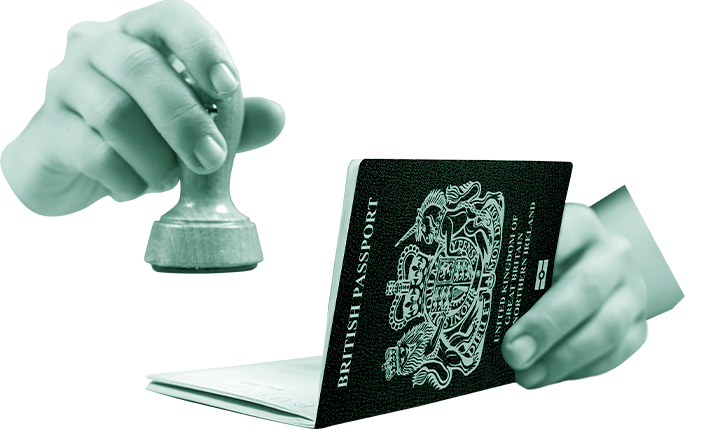Let's Talk

Need Help Urgently?
Call our 24 hour rapid response team now on 0333 311 1090
Request a callback
"*" indicates required fields


To qualify for a Skilled Worker visa, applicants must have a valid job offer from a UK employer holding a sponsor licence. They need to score a minimum of 70 points based on their job offer, English language proficiency, and salary level. The job offer must meet the appropriate skill level, and the applicant should be paid at or above the minimum salary threshold. Additionally, they must meet the health and character requirements and have enough funds to support themselves in the UK. Proof of these requirements is essential during the visa application process.
To obtain a Skilled Worker sponsor licence, the UK employer must demonstrate they are a genuine business operating lawfully in the UK. They need to show they can meet the sponsor duties such as monitoring sponsored employees and complying with immigration rules. The employer must also have the appropriate systems in place to support the sponsored workers and must not have any unspent criminal convictions. Additionally, they need to provide accurate information and documentation to the Home Office upon request to maintain compliance with the sponsor licence requirements.

The genuine vacancy requirement ensures that a job offered is genuine and meets specific criteria, impacting self-sponsorship by verifying the legitimacy of the position. It aims to prevent abuse of the system and protect both the migrant worker and the UK labour market.
To apply for a Skilled Worker visa through self-sponsorship, you must first ensure that you meet all the eligibility criteria and have the necessary documentation in place. Start by filling out the visa application form accurately. Gather your supporting documents, including a valid Certificate of Sponsorship. Be prepared to demonstrate that you meet the English language requirement and have enough funds in a UK bank account. Submit your application along with the required fee and await a decision from the Home Office. Consulting with an immigration solicitor can also help streamline the process.
To apply for a self sponsorship visa, you need to complete the visa application form online on the official UK government website. Ensure accuracy and honesty in providing personal details and answering all required questions. Attach supporting documents, such as a valid passport, financial statements, and any necessary certificates. Submit the form along with the relevant fees and wait for confirmation from the Home Office. It’s crucial to meet all the specified requirements to increase the chances of a successful self sponsorship visa application.
To support your self sponsorship visa application, you will need essential documents such as a valid passport, a detailed business plan, evidence of sufficient funds, qualifications, and a criminal record certificate. Additionally, include a certificate of sponsorship from your proposed employer, proof of English language proficiency, and any relevant job offers. These documents demonstrate your eligibility and intention to comply with UK immigration regulations. Ensure all paperwork is accurate and up to date to strengthen your self-sponsored visa application.
The cost of the Skilled Worker visa for self-sponsored applicants varies. The visa fee is typically £610 for the main applicant and £610 for each dependant. Additionally, there might be healthcare surcharge fees depending on the length of the visa.
The Certificate of Sponsorship cost varies depending on the type of visa. For a Skilled Worker visa, it can range from £536 to £199. Ensure to check the latest fees on the official UK government website for accurate information.


Processing times for the Skilled Worker visa vary but typically range from a few weeks to a few months. Factors like application completeness and caseloads affect the timeline. Ensuring all requirements are met can help expedite the process.
Skilled Worker visa holders in the UK have the option to bring their dependents with them. Dependents can include partners and children. Dependents are eligible to apply for visas at the same time as the main applicant or join them later. Each dependent must meet certain criteria to qualify for a visa, including financial requirements and relationship verification. The main visa holder is responsible for their dependents and must ensure they adhere to all visa conditions throughout their stay. Dependents can typically work and study while in the UK under this visa category.
Extending the Skilled Worker visa involves submitting an extension application before the current visa expires. You must still meet all visa requirements, including the condition of a genuine vacancy. The extension process typically requires proving continuous employment and meeting salary thresholds. Maintain proper records, as a breach can impact future visa applications. The Home Office may request updated documentation, so staying organised is crucial. Seek guidance from immigration experts to navigate this process smoothly. Planning ahead and submitting your extension application in a timely manner is essential to avoid any disruptions in your stay.

To apply for a Skilled Worker sponsor licence for self-sponsorship, UK businesses must meet specific criteria set by the Home Office. The process involves completing an online application, providing necessary documents like the Certificate of Sponsorship, demonstrating the genuineness of the business, and meeting financial requirements. The application includes details on the business structure, key personnel, and sponsor duties. After submission, the Home Office will review the application and may conduct site visits or request additional information before granting the sponsor licence. It is crucial to adhere to the immigration rules and guidelines throughout the application process.
To apply for a sponsor licence, your UK company must provide certain supporting documents. Although the specific requirements may vary based on your company’s circumstances, the following documents are typically required as a minimum:
It is important to note that as a newly registered company with little trading history in the UK, there is a chance that your company may be selected for a pre-registration audit by the UK Visa and Immigration (UKVI). This audit is conducted to ensure that your business has adequate systems and
processes in place to fulfil the duties of a sponsor.
The Innovator Founder Visa is designed for entrepreneurial individuals looking to establish innovative businesses in the UK. This visa route caters specifically to self-employed individuals with a viable and scalable business idea. To qualify for this visa, applicants must meet certain eligibility criteria, including having a unique business idea, access to a minimum investment amount, and endorsement from an approved endorsing body. The Innovator Founder Visa offers a pathway for overseas entrepreneurs to bring their business ideas to the UK, contributing to the country’s innovation and economy.
To self-sponsor your visa, you need to meet the Skilled Worker visa requirements, apply for a sponsor licence, and prove a genuine vacancy. Submit the self sponsorship visa application form with supporting documents. Follow the steps outlined for a successful application process.
Yes, you can self-sponsor a Skilled Worker visa in the UK. Meeting the eligibility criteria is crucial. Providing necessary evidence, such as qualifications and financial resources, is essential for a successful application. Seek professional guidance to navigate this process effectively.
As a sole trader, you cannot sponsor someone directly in the UK. To sponsor someone, you need to operate as a registered company and obtain a sponsor licence from the Home Office. A sponsor licence is required to employ and sponsor skilled workers from outside the UK. It allows your company to bring in skilled workers to work for your business. However, as a sole trader, you can still employ individuals within the UK, but you cannot sponsor them for a visa. This means that any employees you hire must already have the right to work in the UK, such as being a British citizen or having settled status. If you wish to expand your business and sponsor individuals from outside the UK, you will need to register your business as a limited company or another suitable legal entity and obtain a sponsor licence. Once you have the sponsor licence, you can legally employ and sponsor skilled workers to work in your business.
It is important to note that there are specific requirements and obligations associated with being a sponsor, such as complying with the Home Office’s sponsorship duties and maintaining appropriate record-keeping systems. Failure to comply with these duties may result in the revocation of your sponsor licence.

A sponsor licence is a permission granted by the Home Office to an organisation that allows them to employ and sponsor skilled workers from outside the UK. The sponsor licence is a key requirement for businesses that want to hire workers through the Skilled Worker visa route.
Obtaining a sponsor licence involves an application process where the organisation must meet certain requirements and provide supporting documents to demonstrate their eligibility. Once the sponsor licence is granted, the organisation becomes a licensed sponsor and can issue Certificates of Sponsorship to individuals they wish to employ.
The sponsor licence comes with certain responsibilities and duties that the organisation must fulfil. These duties include:
Failure to comply with the sponsor duties can result in the revocation of the sponsor licence and the organisation’s inability to hire or sponsor skilled workers.
Self-sponsorship is typically available to individuals who wish to establish or take over a business in the UK. To qualify for self-sponsorship, the individual or business must meet certain eligibility criteria, including:
It is important to note that self-sponsorship is typically available to business owners or individuals who have a genuine business idea and the necessary resources to establish and operate a business in the UK. Each case is assessed on its individual merits, and meeting the eligibility criteria does not guarantee a successful self-sponsorship application.

There is no minimum investment requirement specified by the UK government for setting up a business in the UK. However, when self-sponsoring a visa through a UK business, you are required to
have sufficient funds to set up and operate the business. The amount of investment required will depend on various factors, such as the type of business, industry, and your business plan. It is important to demonstrate that you have the necessary resources to establish and sustain the business in the UK. Although there is no specific minimum investment requirement, it is essential to ensure that you have enough funds to cover the costs of setting up the business, including office space, equipment, marketing, and initial operating expenses. Additionally, you will need to demonstrate that you have the financial capacity to support yourself and any dependents while living in the UK. It is advisable to consult with an accountant or business advisor to determine the appropriate level of investment required for your specific business venture in the UK.
Yes, as a self-sponsored individual, you can be a 100% shareholder in your UK business and also serve as the Director. Being a 100% shareholder means that you have complete ownership and control of the company’s shares. As the Director, you will have the responsibility of managing the day-to-day operations of the business and making strategic decisions. This includes overseeing the company’s financials, hiring employees, and ensuring compliance with UK laws and regulations. It is important to note that as a Director and shareholder, you have certain legal and financial obligations to the company and its stakeholders. You must act in the best interests of the company and ensure that your actions comply with UK company law.
Additionally, as a Director, you will be responsible for fulfilling the sponsor duties associated with your sponsor licence, such as maintaining accurate records, reporting changes, and ensuring compliance with immigration laws.
As the self-sponsoring individual and Director of your UK company, your position will be that of a senior executive or manager. Your role will involve overseeing the day-to-day operations of the business, making strategic decisions, and ensuring the company’s growth and success. In addition to being the Director, you will also be a key decision-maker and leader within the company. You will have the responsibility of managing the company’s financials, hiring and managing employees, and ensuring compliance with UK laws and regulations. It is important to note that your position within the company will depend on the size and structure of the business. If your company grows and expands, you may need to hire additional employees or appoint other individuals to management positions.

If your business does not perform well and faces financial difficulties, it can have implications for your visa status in the UK. As a self-sponsored individual holding a skilled worker visa, your visa is tied to your employment with your own company. If your business fails or encounters financial difficulties, it may affect your ability to meet the requirements of the skilled worker visa, such as the salary threshold or continuous employment. This could potentially lead to the cancellation or refusal of your visa.
It is important to monitor the financial performance of your business and take appropriate measures to address any challenges or issues. Seeking professional advice from an accountant or business advisor can help you navigate potential difficulties and explore alternative options to ensure the success and sustainability of your business.
Yes, as a self-sponsored individual holding a skilled worker visa, you can bring your partner/spouse and dependent children to the UK. Your partner/spouse and dependent children are considered your dependents under the skilled worker visa category. To bring your partner/spouse and dependent children to the UK, you must demonstrate that you can financially support them during their stay in the UK. This includes providing evidence of accommodation, financial resources, and the ability to cover their living expenses. Your dependents will be granted their own visas, known as dependents’ visas, which will allow them to reside and work in the UK. The duration of their visas will be tied to the duration of your skilled worker visa. It is important to note that each dependent application will be assessed individually, and they must meet the relevant eligibility criteria for their visa category.
Yes, as a self-sponsored individual on a skilled worker visa, you are required to receive a salary from your own company that meets the salary requirements set by the UK government. The salary requirements for a skilled worker visa include a general salary threshold and the “going rate” for the occupation. You must receive a salary that is equal to or exceeds both the general salary threshold and the going rate (whichever is higher). The general salary threshold is subject to change and is currently set at £38,700 per year. It is important to note that the salary requirements may vary depending on your occupation and the specific job you are sponsored for.
It is advisable to consult with an immigration lawyer or accountant to ensure that you meet the salary requirements and comply with the UK government’s regulations regarding salary payments.
If the Authorising Officer (AO) leaves your company, it can have implications for your sponsor licence. The AO is responsible for managing the sponsor licence and ensuring compliance with sponsor duties. If the AO leaves your company, you will need to appoint a new AO within your organisation. The new AO must meet the requirements set by the Home Office, which include being a British citizen or someone who is settled in the UK. It is important to notify the Home Office of any changes to the AO within 20 working days. Failure to appoint a new AO or notify the Home Office of the change can result in the revocation of your sponsor licence. To ensure a smooth transition, it is advisable to have clear processes and procedures in place for the management and transfer of the AO role within your company.
To be eligible for self-sponsorship through the Skilled Worker visa route in the UK, you must meet certain criteria. Firstly, you need to have a suitable and attainable business plan or have identified a business in the UK that you wish to take over. This demonstrates your commitment and intention to establish or run a business in the UK. Additionally, you must have the relevant experience or qualifications required to set up or take over a business in the UK, ensuring that you have the necessary skills and knowledge to effectively manage the business. Furthermore, you must meet the English language requirements, which entails being able to speak and understand English to Level B1 on the CEFR scale. This is determined by passing an approved English language test. Having a good command of the English language is essential for effective communication in the business environment. In terms of resources, while there is no minimum or maximum investment criteria, you are required to have sufficient funds to set up a business. This ensures that you have the financial means to establish and sustain the business in the UK.
Lastly, you must have an Authorising Officer in your business who is either a British citizen or someone who is settled in the UK. This person plays a crucial role in the sponsorship process and is responsible for ensuring compliance with the sponsor duties.
Before you can apply for a skilled worker visa as a self-sponsored individual, the company you wish to set up in the UK must first apply for a sponsor licence. This licence allows the company to sponsor individuals for employment in the UK. The application for a sponsor licence involves providing various documents to demonstrate the genuineness of the business and its ability to meet the
sponsor duties. These documents typically include the latest corporate bank statement, employers’ liability insurance, proof of business premises, and HMRC registrations for PAYE.
It is important to note that as a newly registered company with little trading history in the UK, there is a chance that the company will be selected for a pre-registration audit by the UKVI (UK Visas and Immigration). This audit is conducted by the UKVI to ensure that the business has adequate systems and processes in place to meet the duties of a sponsor. It is recommended to seek the assistance of an immigration lawyer to prepare for this audit. Once you have obtained a sponsor licence, you are eligible to apply for a skilled worker visa. The skilled worker visa allows you to work and live in the UK. When applying for the skilled worker visa, you will need to provide various documents, including your certificate of sponsorship reference number, evidence of meeting the English language requirements, a valid passport or another valid document proving your identity and nationality, your job title, annual salary, and job occupation code, and the name of your employer and their sponsor licence number. In addition to these documents, you may also be required to provide evidence of meeting the financial requirement, such as having sufficient funds to support yourself and any dependents if necessary. Depending on the country you are applying from, you may also need to provide a tuberculosis test result, a criminal record check, or a valid ATAS certificate in certain circumstances.
Overall, the eligibility criteria and requirements for self-sponsoring a Skilled Worker visa involve demonstrating your business plan or identifying a business in the UK, having the relevant experience or qualifications, meeting the English language requirements, having the required resources, and obtaining a sponsor licence for your UK company. It is important to consult with an immigration lawyer to ensure that you meet all the necessary criteria and provide the required documents for a successful application.
To self-sponsor a Skilled Worker Visa in the UK, you need to provide certain financial evidence. While there is no specific minimum or maximum investment criteria, you are required to have sufficient
funds to set up a business. This includes providing a corporate bank statement as part of the sponsor licence application, which should demonstrate that you have the required resources to establish and
operate a business in the UK.
Additionally, when applying for a skilled worker visa, you may also need to provide evidence of meeting the financial requirement. This requirement is assessed on a case-by-case basis and considers factors such as the nature of the business, its financial viability, and the applicant’s ability to support themselves and any dependents in the UK. Overall, it is important to demonstrate that you have the financial means to support your business and yourself while in the UK under the self-sponsorship route.

The process of obtaining a self-sponsored Skilled Worker Visa in the UK can vary depending on several factors. The timeline typically involves two main stages: obtaining a sponsor licence for your company and applying for the Skilled Worker Visa. The sponsor licence application process can take between 8 to 12 weeks, during which the UK Visas and Immigration (UKVI) will assess your company’s eligibility and compliance with the necessary requirements. Once you have obtained the sponsor licence, you can proceed with the application for the Skilled Worker Visa. The processing time for the visa application itself may vary, but it is generally advised to allow around 3 to 8 weeks for a decision to be made. It is important to note that these timelines are estimates and can be subject to change based on individual circumstances and any additional checks or requirements from the UKVI.
Yes, under the Skilled Worker Visa program, there are no specific restrictions on the types of professions eligible for self-sponsorship. As long as you meet the eligibility criteria for the Skilled Worker Visa, including having a suitable business plan, relevant experience or qualifications, and the required resources to set up a business in the UK, you can potentially apply for self-sponsorship in any skilled occupation. The Skilled Worker Visa is designed to attract skilled workers to fill job vacancies in the UK, and self-sponsorship allows individuals to establish their own businesses and contribute to the UK economy. Whether you have a unique business idea or wish to take over an existing business, as long as you can demonstrate the necessary skills and qualifications, you can explore self-sponsorship as an option under the Skilled Worker Visa program.
To apply for a Skilled Worker Visa through self-sponsorship in the UK, you need to follow a series of steps. Here is an overview of the application process:
Yes, family members can accompany you on a self-sponsored Skilled Worker Visa in the UK. Once you have obtained your Skilled Worker Visa through self-sponsorship, your immediate family members, such as your spouse or partner and dependent children, can apply to join you in the UK as dependents. They will need to submit their own visa applications, providing the necessary supporting documents such as marriage or birth certificates, evidence of their relationship to you, and proof of financial support. It is important to note that there may be additional requirements and fees associated with bringing family members to the UK, and each individual’s circumstances may vary. It is advisable to consult with an immigration lawyer or specialist to ensure you understand the specific requirements and processes for including family members in your self-sponsored Skilled Worker Visa application.
To prove your skills and qualifications for a self-sponsored Skilled Worker Visa in the UK, you will need to provide relevant evidence as part of your visa application. This evidence can include certificates, diplomas, degrees, or professional qualifications that are recognised in the UK. It is essential to demonstrate that your skills and qualifications are directly relevant to the role or business you are intending to undertake in the UK. The UK Visas and Immigration (UKVI) will assess whether your skills and qualifications meet the eligibility requirements for the Skilled Worker Visa. Additionally, you may be required to provide other supporting documents, such as reference letters from previous employers, proof of work experience, or evidence of any industry-specific certifications or licenses. It is important to ensure that all documentation is accurate, up-to-date, and meets the requirements set out by the UKVI.
Renewing a self-sponsored Skilled Worker Visa in the UK involves meeting certain requirements set out by the UK Visas and Immigration (UKVI). The renewal process is similar to the initial visa application process and generally requires demonstrating that you continue to meet the eligibility criteria. Here are some key renewal requirements to consider:
It is important to initiate the renewal process well in advance of your current visa’s expiration date to ensure a smooth transition and avoid any gaps in your legal stay in the UK.

Yes, language requirements are crucial for the self-sponsored Skilled Worker visa. Applicants must demonstrate English proficiency through approved tests like IELTS. Adequate language skills ensure effective communication in the workplace and integration into the UK society.
The UK business doesn’t have to be innovative or unique under the self-sponsorship route. It’s more about meeting the visa requirements and demonstrating the genuine need for your skills. Innovation isn’t a mandatory criterion for self-sponsoring a Skilled Worker Visa.

To support your self-sponsored Skilled Worker visa application, providing a business plan is crucial. It demonstrates the viability and sustainability of your venture in the UK. The plan showcases your strategy, market analysis, financial projections, and more to strengthen your application.
Yes, as a self-sponsored Skilled Worker in the UK, you can take on additional work alongside running your business. However, this work must not interfere with your visa conditions or the operation of your business.
To qualify for indefinite leave to remain, you need to meet the residency and income requirements after being on a self-sponsored Skilled Worker visa. It’s crucial to adhere to visa conditions and follow the UK immigration rules for a successful application.


If your UK self-sponsorship visa route application is refused, you may have the option to appeal the decision or reapply. It’s crucial to understand the reasons for the refusal and address any issues before proceeding. Seek professional advice for guidance on the best course of action.
Yes, it is possible to switch from another visa to the self-sponsorship visa route. Certain conditions and requirements need to be met to successfully transition. Understanding the process and eligibility criteria is crucial for a smooth switch.
Navigating the self-sponsorship visa route may pose challenges such as meeting stringent eligibility criteria, providing extensive financial evidence, and adhering to specific language requirements. Understanding these hurdles is crucial for a successful application.
The point-based immigration system in the UK has had an impact on the self-sponsorship visa route. Under this system, individuals applying for a skilled worker visa must meet specific criteria to be eligible for sponsorship. Although self-sponsorship is not a distinct visa category, it refers to using your own company to sponsor yourself through the Skilled Worker visa route. The point-based system assesses applicants based on factors such as their skills, qualifications, and job offer. To be eligible for self-sponsorship, individuals must have a suitable and attainable business plan, relevant experience or qualifications, meet the English language requirements, have the required resources to set up a business, and have an Authorising Officer in their business. This system ensures that individuals applying for the self-sponsorship visa route meet the necessary requirements for skilled workers in the UK.



Call our 24 hour rapid response team now on 0333 311 1090
"*" indicates required fields
"*" indicates required fields